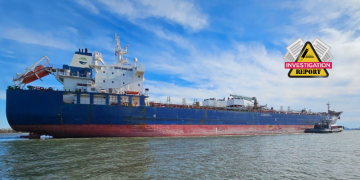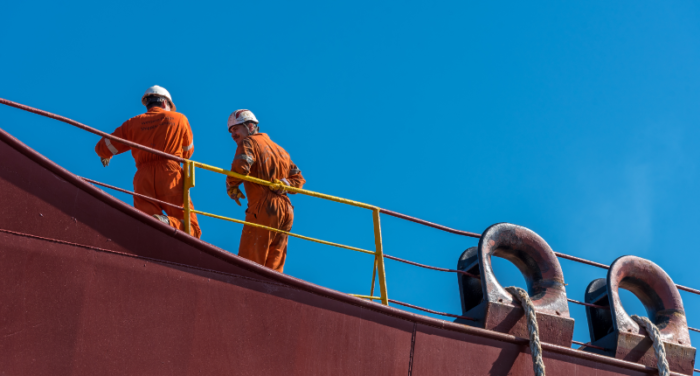In an effort to prevent any frauds concerning the STCW certificates, the amended Convention in 2010 introduced stricter requirements for the training centers issuing certificates and endorsements by putting greater responsibilities on parties as well as keeping an electronic database with controlled access.
- STCW Convention at a glance
- STCW Convention: Terms and Definitions
- Certificates needed for compliance with STCW
- How seafarers can get their STCW certificates
- STCW Convention: General requirements for officers
- STCW Convention: General requirements for ratings
- STCW: How to obtain a certificate of competency as Master
- STCW: How to obtain a certificate of competency as Chief Mate
- STCW: How to obtain a certificate of competency as Navigational Watch
- STCW certificates according to function and type of vessel
- Training issues under STCW: What you should know
- STCW: Certificates and documentary evidence needed onboard
- Alcohol and drug consumption onboard: Taking prevention measures
- STCW: Setting the hours of rest for watch personnel
In addition, education and training institutions need to have academic and training program approved by the administration issuing the certificate and all instructors and supervisors involved not only to be qualified and experienced in the particular types and levels of training and assessment they give but also to be aware of teaching techniques. For example, an instructor teaching fire fighting techniques should be both qualified and have practical experience in teaching fire fighting techniques.
Only seafarers who have a valid certificate from a training centre that is properly authorized to run the courses offered or to issue STCW certificates on behalf of the administration, can provide proof of competence. As such, it is advisable for seafarers, before enrolling on any course, to make a research whether the programs offered comply with STCW standards and the training centre has been authorized as explained above. Administrations maintain a register of approved providers, course and programs accessible by companies and other parties.
[adrotate banner="304"]
The amended Convention also approved distance learning and e-learning techniques and therefore, administrations may allow the training of seafarers using these methods in accordance with the standards in section A-I/6.
When training is conducted onboard training, it should be documented with the use of training record, extended to all ratings. The 2010-amended STCW has increased refresher requirements on certificates of proficiency which can be facilitated onboard, but where evidence of training is not available five yearly retraining ashore is required.
English language requirements
Since crews onboard are multi-national and multi-lingual, the importance of sharing a common language cannot be underestimated. As such, under the STCW Convention, the good command of the English language is mandatory and in particular:
- All officers in charge of a watch (navigational or engineering) must have a good command of spoken and written English.
- Senior officers with functions at a managerial level must also speak and write English
- Ratings forming part of a navigational watch are required to be able to comply with helm orders issued in English.
- Crew members assisting passengers during emergency situations should be able to communicate safety-related issues in English or in the language spoken by the passengers and other personnel on board.
When simulator training is mandatory
STCW mentions that only training courses on the use of radar and ARPA and the use of electronic chart display and information systems (ECDIS) are mandatory with the use of simulators because in such cases, simulators are the only accepted methods of demonstrating competence. In all other courses, approved simulator training and assessment is not mandatory; thus, optional simulator training and assessment covers navigation and ship handling, cargo handling, GMDSS communication, propulsion and auxiliary machinery.
ISM Code and STCW
The amended STCW convention clearly requires that each seafarer be fully familiarized, and understand the company’s policies and procedures and therefore, each company has as responsibility to ensure that master is properly qualified for command, conversant with the company’s SMS and also that the crew properly understand the SMS to the level of their duties and are properly trained for its implementation. Lastly, the company should ensure the ship is correctly manned with qualified, certificated and medically fit seafarers who are properly familiarized with their duties.
GMDSS certificates
Seafarers in charge of distress and safety communications on a ship are required to comply with GMDSS and hold a GMDSS certificate.
There are two types of GMDSS certificates:
- The general operator’s certificate (GOC), for personnel assigned to radio- communication duties on deep-sea ships operating beyond VHF coast station coverage.
- The restricted operator’s certificate (ROC), for personnel on board ships operating only in sea areas within VHF coverage (coastal areas).
Namely, all seafarers performing navigation duties at operational and management levels (master and officers), and any other person assigned to radio communication duties, need to hold a GMDSS certificate. It is worth noticing that masters and deck officers are required to hold a GMDSS certificate only on ships that participate in GMDSS.
Medical Fitness
In the amended STCW, the following criteria for standards of physical and medical fitness apply:
- Have the physical capability to fulfil all the requirements of basic training;
- Demonstrate adequate hearing and speech to communicate effectively and detect any audible alarms;
- Have no medical condition, disorder or impairment that will prevent the effective and safe conduct of their routine and emergency duties onboard.
- Are not suffering from any medical condition likely to be aggravated by service at sea or likely to render the seafarer unt for such service or to endanger the health and safety of other persons on-board; and
- Are not taking any medication that has side effects that will impair judgement, balance or any other requirements for effective and safe performance of routine and emergency duties on-board.
Medical fitness examinations of seafarers shall be conducted by appropriately qualified and experienced medical practitioners recognized by the administration.





























































